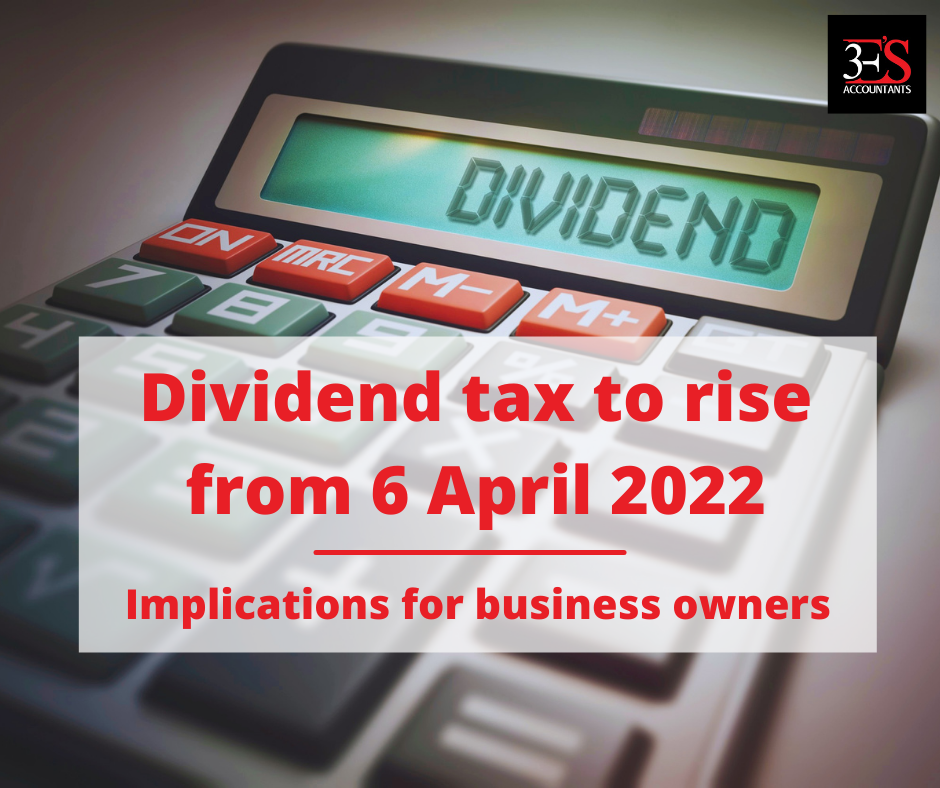The government has confirmed that it will not be backing down on the planned hike in National Insurance (NI) and dividend tax to increase from 6 April 2022. There is a lot in the news about how the NI increase will affect families along with other factors such as the increase in the Bank of England interest rate and the rising energy costs. Little is being said though about how this will affect small businesses though and their owners. Dividend taxes will increase from 6 April 2022, and this will affect SME owners who trade as a limited company.
Here’s a short guide about what is changing and how the changes will impact you:
What are the implications for basic rate taxpayers?
As an example, if you are the owner of a limited company, earning a £8,840 salary and receiving dividends up to the threshold of the higher rate tax band which is currently £50,270, the dividends would be taxed at 8.75% rather than 7.5%.
Points to note are:
- Your salary will not be subject to income tax or NI
- The first £2,000 of dividends fall within the dividend allowance
- Another £3,750 falls within the £12,570 personal allowance and is tax-free
- The remaining £35,700 of dividends are taxed at the new 8.75% basic rate = £3,123,75
- Under the previous dividend basic tax rate of 7.5%, you paid £2,677.50
So, because of the new tax, you could end up paying an extra £446.25 in 2022/23.
What are the implications for higher rate taxpayers?
This is relevant if you receive dividends within the higher rate band – from £50,270 – £150,000 per annum. The higher rate of dividend tax will go from 32.5% to 33.75%. This will mean that for every £1,000 dividend received, an extra £12.50 will need to be paid. So, simply, if you receive an extra £20,000 of dividends during the 2022-23 tax year, you will pay an extra £250 in higher rate dividend tax.
What are the implications for additional rate taxpayers?
All the rates of dividend tax will rise by 1.25% for individuals earning over £150,000, the additional dividend tax rate increases from 38.1% to 39.35%. So, once again, you will pay an extra £12.50 for every £1,000 earned over £150,000.
Need our help with dividend tax?
There could be other options to explore including paying dividend tax early, although this could accelerate the tax position. Remunerating shareholders in other ways such as via pension contributions might also be a good solution.
There are options we can explore to mitigate tax for you and your business.

